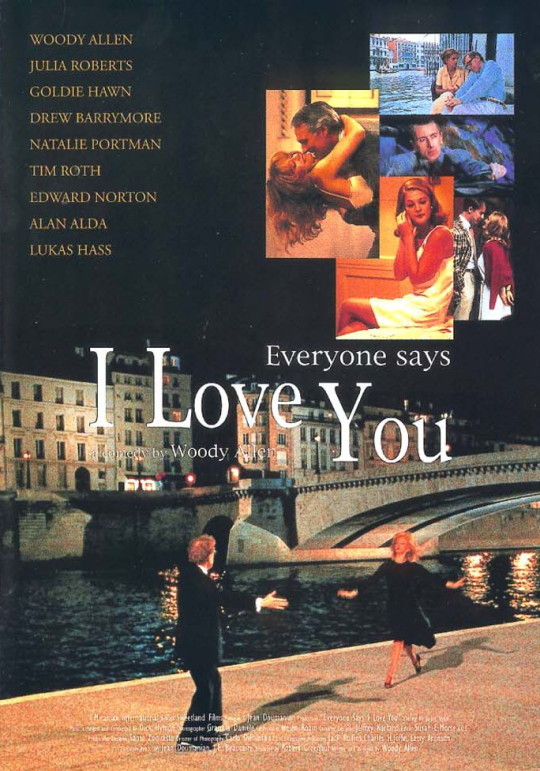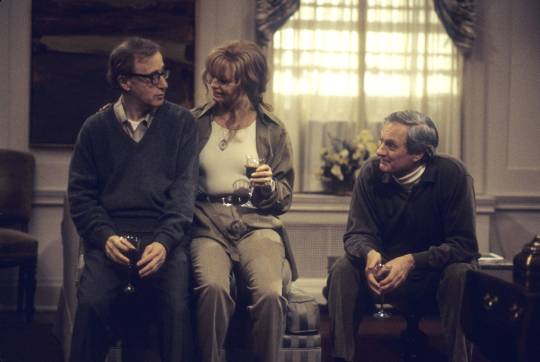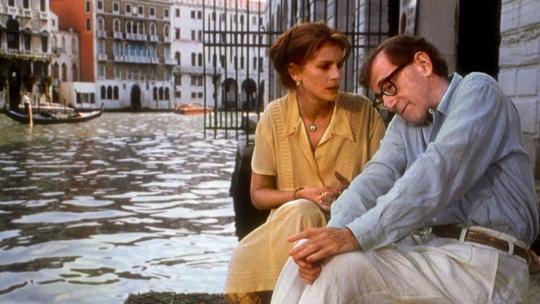#he would absolutely rather throw a book at somebody’s head and watch them bleed
Explore tagged Tumblr posts
Note
How would you characterize the Punks?
You mean how do I think each of the Powerpunks would act? I mean, they’d probably just have the opposite of the OG girls’ good qualities. Berserk would be an unrelenting authoritarian who would eschew any kind of intellectual pursuit (she would never read a book, that’s for loser nerds), Brat would be totally uncaring and unsympathetic to everyone (plus would probably only cry if she didn’t get her own way), and Brute would just be a full-on jerk through and through, would 100% kick an innocent dog for fun.
#powerpunk girls#I had to add innocent to the dog part because as we know there ARE dog villains in Townsville#and Buttercup probably WOULD kick a dog if it stole a million dollars from the bank#the dog has to deserve it though that is the key difference#also I’m sorry I had this ask in my drafts! forgot to post it lol#actually speaking of berserk this is how I would characterize brick too#it honestly baffles me when people make him as smart as blossom because he would NEVER#do you people really think he would want to read a book???? like a NERD????#he would absolutely rather throw a book at somebody’s head and watch them bleed#I have more thoughts on this matter but I won’t say anymore 👀
12 notes
·
View notes
Text
Everyone Says I Love You

Each passing film Woody Allen I watch, I love. No matter how similar they are to one another at times or the consistent themes or even the same actors popping up can dissuade me from loving his work. Yet, in saying that, there has to be a film of his that knocked me so head-over-heels that it had me laughing throughout. Most of his films are great and lose a bit of steam towards the end or go the opposite route and only start to really hit their stride towards the end. Everyone Says I Love You, however, is a film that hits all of the right notes from the very beginning. As a musical romantic comedy, the film stands as Allen’s sole musical endeavor and yet it never feels out of his nature. Using realistic singing voices (read: decent to bad), comical musical numbers, and gooey song lyrics, as he explores the nature of love, the ups and downs, and the difference in love-based actions by everybody who engages in the feeling, Everyone Says I Love You is an absolute riot. Touching on various typical Allen themes - the nature of love, philosophy, psychotherapy, atheism, mortality, the changing of times (healthy food and technology), and politics - Everyone Says I Love You is whole-heartedly a Woody Allen film but it is handled - due to the music - in such a unique way that it stands apart from the rest of his filmography and becomes its own beast. Giving him room to honor old Hollywood, satire classic musicals, and deliver all of his typical neurosis, the film is perhaps the best Woody Allen film I have seen.
As with many Allen films, the plot is manic, neurotic, and obsessive. Here, however, it takes a page out of the book of Radio Days with a large family as the center for the film. At the center are exes Joe (Woody Allen) and Steffi (Goldie Hawn). The two remain good friends, while Joe struggles repeatedly to find somebody to love as he is still hung up on Steffi. For her part, Steffi is now married to Bob (Alan Alda). Joe and Steffi had one daughter together, D.J. (Natasha Lyonne) who serves as the narrator to our tale. D.J. is boy crazy as a college-aged girl, bouncing from one soul mate to the next, swearing she loves them, and even planning to marry one of them. Meanwhile, Bob and Steffi had four children together - Skylar (Drew Barrymore), Scott (Lukas Haas), Lane (Gaby Hoffmann), and Laura (Natalie Portman) - who all go through their own issues. Skylar is set to be married to Holden (Edward Norton), but falls for an ex-convict named Charles (Tim Roth) who her mother Steffi (as a democrat who regrets her privileged upbringing) campaigned for to receive parole. Lane and Laura compete over a boy named Jeffrey Vandermost (John Griffin), who turns out to be the heir to a major fortune. Scott, due to what is eventually revealed to be a brain blockage that is suffocating his thought process, is a conservative Republican which puts him at odds with Democratic father Bob, who grew up poor thus he does not have the same guilt as wife Steffi. Meanwhile, Joe tries to woo Von (Julia Roberts). With the assistance of D.J., who has overhead Von’s therapy sessions with one of her’s friends mothers in a fashion similar to the eavesdropping in Allen’s Another Woman, Joe pours it on thick and expresses a love for everything that he knows Von to love. As typical, a lot of theorizing about the nature of love, the ups and downs, and the swearing off of loving only to then love again occurs, but what becomes abundantly clear through Everyone Says I Love You is that nobody has any idea what they are doing. It is a free-flowing film with a quick pace to match just how quickly one’s mind changes as to where their feelings lie. There is no consistency and people, unfortunately, suffer from this ebb and flow of emotion with the tone and bouncy style of the film capturing this brilliantly.

While Allen is not really known for his musicals (okay, he is not known at all for musicals), Everyone Says I Love You nonetheless fits right into the classic Allen narrative formula. At the center of this film are a manic family defined by their neurosis and who brush shoulders with people who use psychoanalysis extensively. As their grandfather dies, the family does not mourn but instead takes it as a chance to ruminate on what happens after death with Bob asserting that he is absolutely an atheist though he was raised Jewish. During this same moment, a remark is made about how the standards for what is good to eat changes all the time, which falls right in line with Von’s earlier complaints about technology which previously led to Joe to invest in a typewriter. The politics in this film are decidedly Democratic with Republicanism defined as being a mental disorder, but Allen does not go easily on the Democrats as he mocks their lax attitude towards convicted criminals and their “bleeding heart” nature. In essence, all of this combines into a perfect combination of everything that a Woody Allen film can be about. There is religion, psychoanalysis, discussions about mortality, a resentment about the changing of the times, and the mocking of politics while being deeply political itself. Furthermore, Everyone Says I Love You additionally establishes itself as classic Allen material with how referential it is to old Hollywood. Name dropping Bernardo Bertolucci or Noel Coward, while Joe makes a crack about how Kirk Douglas playing Vincent Van Gogh is the only thing he knows about art, Everyone Says I Love You is a film that, while greatly experimental for Allen in terms of execution, is at its core a film that hardly breaks new ground for Allen. All of his films have these same themes and the same knack for referencing the classics or filmmakers who Allen idolizes. Yet, while it is nothing ground-breaking for him, what establishes this one as being one of his finest is the package in which it comes. Utilizing musical conventions could have been dangerous, but under Allen’s steady hand, he manages to balance the need for musical numbers with his typically neurotic sense of humor and his typical thematic endeavors with relative ease.

In the process, Allen creates a film that is as much a referential and deeply derivative as it is a satire about the musicals of old. The irreverent randomness of the musical numbers - such a ghost-led number or one set in a hospital where even the patients get in on the act - mocks the exuberance and burst of emotion of classic Hollywood musicals by pointing out their absurdity and then taking it a step further, a classic trait of satire. The ghosts or the patients may be absurd to see engaging in song and dance, but so are the other-worldly dance numbers in the middle of the street like in West Side Story or Gene Kelly running around and snagging light poles in Singin’ in the Rain. None of it makes sense and Allen, while honoring those musicals’ sensibilities and style, mocks the absurdity of their numbers with hysterically conceived ideas that only get increasingly absurd and funny as the film progresses. However, where the film truly nails the musical satire bit of its focus is in the final number. As the film switches from being partially set in New York City to having the whole cast converge in Paris - both classic musical settings with even La La Land switching to Paris by the end - Allen puts both Joe and Steffi at a bridge that carries a lot of memories for them before they break into song and dance. As the number progresses, Steffi is put on a wire, floating over Joe or sliding a hysterical distance away from him as if she were skating on ice. With these exaggerated movements, the whimsical nature of the scene, and the otherwise classic choreography of the number, Allen skewers the exuberant, over-stuffed, and fantastical nature of musicals with a closing number that allows Everyone Says I Love You to end on a truly excellent comedic note.
However, one of the best touches of Everyone Says I Love You is the singing. As an Allen film, it is obviously a romantic comedy with this musical touch being in addition to the other two bits. Thus, it is no surprise that everybody uses their natural singing voice - except Hawn who sung worse on purpose and Barrymore who was dubbed because she thought she was too awful - to communicate this tone. The singing is never bad, but it is decidedly average and realistic. It is not Hollywoodized, autotuned, or commercialized, just average people walking around the streets singing about love or their broken heart. With the pitch perfect notes, Everyone Says I Love You doubles down on its satire as it breaks the facade created by musicals - the facade being that this is the real world where these people are just so happy they sing perfectly and dance perfectly without any help - with these average people stumbling their way through these overly mushy songs about how they feel in the present moment. This incredibly tongue-in-cheek decision made by Allen to let his cast sing as they normally would is not just great for the satire, but great for the tone of the film. If he had stuck with great singing, the musical numbers would be at odds with the comedic approach to the rest of the film. It would be as if half the film was trying to be a serious romantic musical while the other half was just a typical neurotic Allen comedy. The pairing would be awkward and, largely, unenjoyable. However, as the entire cast sings poorly, it matches the light, not-to-be-taken-seriously tone of the rest of the film and allows the hilarity of the numbers and musical encounters to take center stage instead of how great their singing voices are.

In blending the romance, comedy, and musical, elements of the film, Allen deftly juggles everything he throws at this film and allows each piece to complement one another rather than stealing the focus for itself. The romance is gooey, creepy, and neurotic, as it always is in Allen films. The aforementioned endeavor to show how hopeless everyone is in love is well-written and often exemplified by the neurotic encounters between characters that elicit laughs or the musical moments expressing this hopelessness. All combine to make the romance always feel authentic and the problems the characters face are always grounded in reality in spite of the inclination on their part to break into song. The comedy is typically excellently timed and delivered, right down to visual gags such as the camera exploding as Joe takes a picture. It, like the romance, both enhances the awkwardness of the romantic relationships - such as Skylar screwing up deciding to go with Charles or as she eats her engagement ring with Holden - and makes the musical moments all the more enjoyable as Allen tosses in irreverent numbers or visual gags in those scenes. The musical bits are well-written and perfectly sung for the style of the film, while also serving to reveal a lot of inner thoughts regarding the romantic side of the film and helping to make the film funnier due to the goofy choreography or lyrics. In essence, what makes Everyone Says I Love You so effective is how top-notch each element of this film is in its own right and how it blends into the others. This is a film that is romantic, funny, and has great music. It does not sacrifice one or the other to give another side of the film more screen time, instead they all gel with one another as Allen deftly weaves them all together to create a highly entertaining and enjoyable experience.
A funny, inventive, daring, and incredibly unique take on Woody Allen’s classic narrative and themes, Everyone Says I Love You is a film with strong acting, fun musical numbers, top-notch comedy, and authentic romance. Honestly, there is not much this film does wrong with Allen hardly ever putting a foot wrong in this one. This one is very much an under-the-radar film from Allen, but for me, it is low-key his best film.
#film analysis#movie reviews#film reviews#1996 movies#1990s movies#woody allen#everyone says i love you#natasha lyonne#goldie hawn#julia roberts#natalie portman#edward norton#drew barrymore#alan alda#lukas haas#tim roth#billy crudup#liv tyler
1 note
·
View note